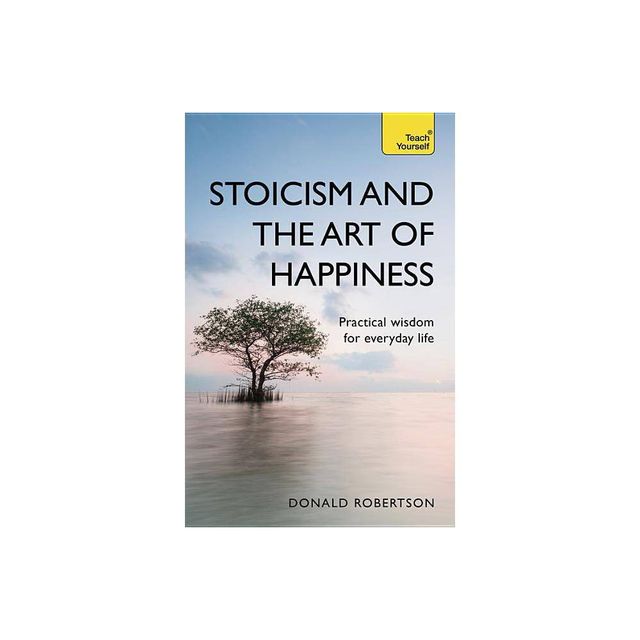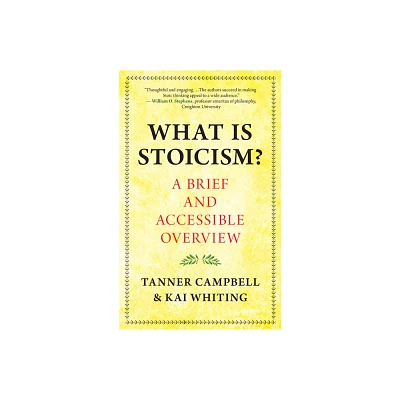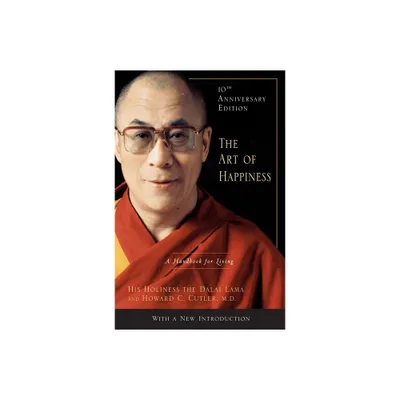Home
Stoicism and the Art of Happiness: What is Stoicism
Loading Inventory...
Barnes and Noble
Stoicism and the Art of Happiness: What is Stoicism
Current price: $15.68


Barnes and Noble
Stoicism and the Art of Happiness: What is Stoicism
Current price: $15.68
Loading Inventory...
Size: OS
*Product Information may vary - to confirm product availability, pricing, and additional information please contact Barnes and Noble
Stoicism is much more than just not showing emotion. It is about centering and controlling yourself. This does not mean repression. Actually, stoicism is, in many ways, the highest form of expressing your true self because when a person is following the practice, they act according to their core values, reaching for eudaimonia, or your highest self.
The first step to this is to take responsibility for what you do and say. People are going to act rudely and upset you at times, and more often than not, this is more of an expression of how they feel about themselves than about you. If someone insults you, that is their choice. It is yours to react, and if you lose your temper, you must accept ownership of that. Other people can only control you if you let them. Channeling stoicism would mean to ignore the bait. This may seem like being passive, but if you respond to this person, it will only result in an argument, which will be a waste of your time. If you do not react to their words, you are not dignifying them, and thus you have rendered them meaningless.
A stoic does not fall into the "victim mentality" in which a person points the finger at other people when something goes wrong in their lives, knowing that only keeps you stuck where you are at today. They also live according to their core values. This is also called living with Arete. This does have to mean morally superior. When you dive into your creativity and express yourself, you are living with arete. It means gaining new experiences and, therefore wisdom. It is putting maximum effort into everything you do so you can feel proud of it.
Finally, a stoic focuses solely on the things they can control and are content with where they are right now. Of course, you have goals you want to achieve, and that is a good thing. However, it can become a detrimental force if you spend most of your time thinking about what you do not have and it depresses you. Time spent in this mindset is as wasted as time spent worrying about what might happen in the future. Whatever outside forces are going to do is beyond your control. When you focus on that, you are not doing anything to help yourself. This is why it is important to accept your current circumstances, even if they are unpleasant, so you can move within them. When you are present in your real life, you have the most control over it.
Think about it this way. A person who currently has a low-paying job and does the bare minimum while envying others will stay right where they're at. On the other hand, the person who accepts that does it as well as they can and impresses their supervisors has the prospect of getting a raise and promotion. They are embracing the stoicism virtues because they are putting their effort into what they can control and turning in high-quality work, therefore taking responsibility and an active role in their own life.
The first step to this is to take responsibility for what you do and say. People are going to act rudely and upset you at times, and more often than not, this is more of an expression of how they feel about themselves than about you. If someone insults you, that is their choice. It is yours to react, and if you lose your temper, you must accept ownership of that. Other people can only control you if you let them. Channeling stoicism would mean to ignore the bait. This may seem like being passive, but if you respond to this person, it will only result in an argument, which will be a waste of your time. If you do not react to their words, you are not dignifying them, and thus you have rendered them meaningless.
A stoic does not fall into the "victim mentality" in which a person points the finger at other people when something goes wrong in their lives, knowing that only keeps you stuck where you are at today. They also live according to their core values. This is also called living with Arete. This does have to mean morally superior. When you dive into your creativity and express yourself, you are living with arete. It means gaining new experiences and, therefore wisdom. It is putting maximum effort into everything you do so you can feel proud of it.
Finally, a stoic focuses solely on the things they can control and are content with where they are right now. Of course, you have goals you want to achieve, and that is a good thing. However, it can become a detrimental force if you spend most of your time thinking about what you do not have and it depresses you. Time spent in this mindset is as wasted as time spent worrying about what might happen in the future. Whatever outside forces are going to do is beyond your control. When you focus on that, you are not doing anything to help yourself. This is why it is important to accept your current circumstances, even if they are unpleasant, so you can move within them. When you are present in your real life, you have the most control over it.
Think about it this way. A person who currently has a low-paying job and does the bare minimum while envying others will stay right where they're at. On the other hand, the person who accepts that does it as well as they can and impresses their supervisors has the prospect of getting a raise and promotion. They are embracing the stoicism virtues because they are putting their effort into what they can control and turning in high-quality work, therefore taking responsibility and an active role in their own life.


















